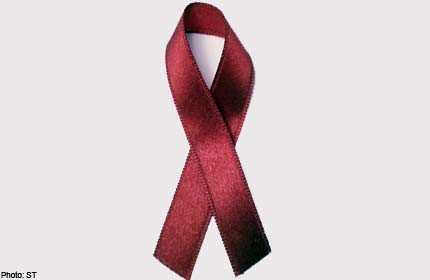Threat of HIV infection lingers: S Korea

It has been a long time since health experts first declared that AIDS is not transmittable through everyday human interaction or an automatic death sentence.
But public perception is still behind scientific and medical knowledge. People infected with HIV are refused entry into the country at immigration while many hide their health status out of fear of being discriminated against by society.
According to the Korea Centers for Disease Control and Prevention, there have been 7,656 reported cases of HIV as of 2010. Thanks to ever-developing medical technology, 6,292 are still alive. Some of them have survived for more than two decades.
According to the KCDC, 33 per cent of HIV positive people have separated from their families while 44 per cent have quit their jobs.
Their drastic decisions stem from public ignorance and prejudice toward the issue. In a survey by the KCDC and the Korea Federation for HIV/AIDS Prevention, 56 per cent of the surveyed couldn't give the right answer to the question of whether HIV positive people can survive for more than 20 years.
Other false information about the virus was widespread: Only about 46.4 per cent knew that kissing does not transmit the virus, while just 22.8 correctly answered that it can't be passed on by mosquitoes.
About 36 per cent associated the virus with death, fear and other negative images.
On Thursday, a group for HIV positive people, Nanuri+, held a press briefing in front of the Ministry of Health and Welfare building in downtown Seoul and called for comprehensive measures against the social prejudice and for the improvement of their rights.
"We call for the government to come up with measures against new transmissions, death from HIV-related diseases including AIDS, as well as social and systematic discrimination against infected people," the group said.
To mark World AIDS Day on Thursday, government officials, civic groups and HIV positive people held a street campaign in downtown Seoul to promote the truth about the virus and AIDS.
"HIV transmission is preventable through the use of condoms during sexual intercourse. Medical techniques have enabled people to live with it as people with chronic illnesses do," a KCDC official said.
"It is a shame that many people still hold on to the fear against the virus and have created social prejudice. What we need is a good channel to distribute the truth about the virus," Choi Hyun-wook, official of the HIV federation, said.